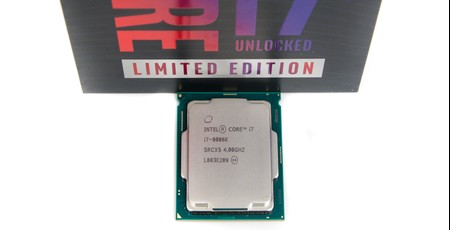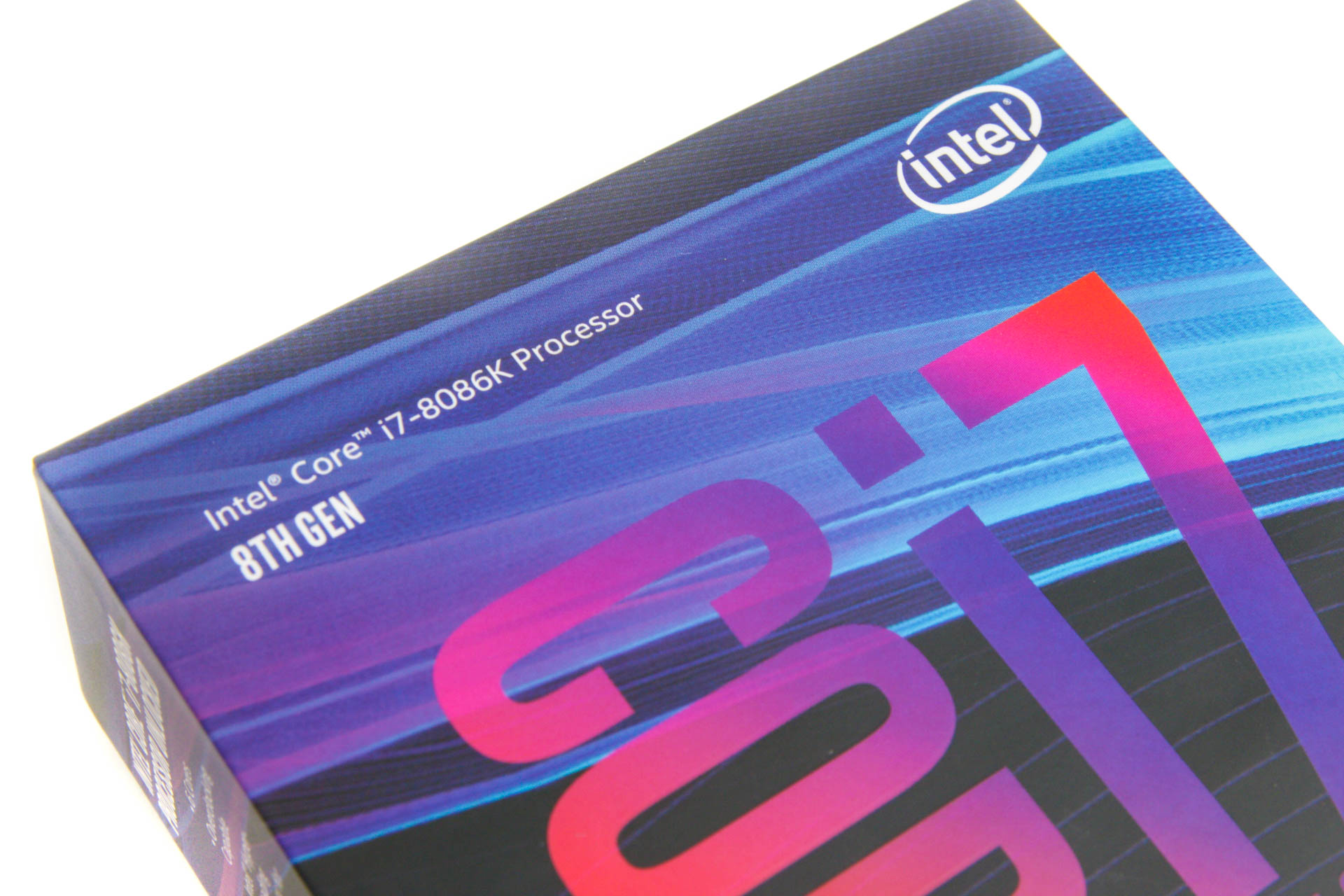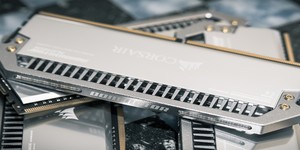
Overclocking
The overclocking lottery saw Core i7-8700Ks reach anywhere between 4.8GHz and 5GHz, with our own sample topping out at 5GHz using up to 1.3V vcore, with some boards netting the same frequency with lower voltages. That was an engineering press sample, though, or maybe we just got lucky. Either way, 5GHz was certainly possible on plenty of CPUs, with many retailers speed-binning CPUs that were capable of even more.
Our sample here is direct from an etailer's shelf so is as retail as you can get, so hopefully it's a reasonably good indicator of what we can expect in the wild, although it is of course still just a single point of reference. We started proceedings at 5GHz with 1.3V, and it ran through a 20-minute stint of Prime95 plus some of our more demanding benchmarks without a hitch.
We managed to notch up to 5.1GHz at the same voltage, which is great news, but 5.2GHz wasn't stable, even when upping the voltage to 1.32V, where things started to get a little toasty, too. This is encouraging, though, as it means that 5GHz will likely be possible on most samples.
Performance Analysis
There are two reasons for slightly higher performance in some tests, with the first being a higher single-core boost at stock speed and the second being a 100MHz advantage for the Core i7-8086K when overclocked. At stock speed, the multi-threaded benchmarks unsurprisingly matched the results for the Core i7-8700K, with the margin of error likely accounting for the difference between them.
Being the fastest Intel mainstream CPU out there is one reason you might consider buying but not overclocking the Core i7-8086K, but in most cases, including our game tests, the difference certainly isn't worth the extra outlay. Only when pure single-core performance is concerned were there any benefits, with a leap from 533 to 545 in the CPU-Z single core-benchmark and from 200 to 211 in Cinebench's single-core test, while our Hamster Zip Archiver benchmark also benefited a bit too.

Reaching 5.1 GHz clearly had an impact, shaving two seconds off the HandBrake benchmark time, although this still landed it two seconds behind the Ryzen 7 2700X. PCMark 10 saw a 200-point boost from 4,258 to 4,464 - again this wasn't enough to topple the Ryzen 7 2700 or 2700X. Cinebench saw the score rise from a stock speed 1,400 to 1,690, although this was only 60 points higher than the Core i7-8700K. Hamster Zip Archiver continues to scale up to 5.1GHz, with the new six-core CPU posting the quickest time that was also three seconds lower than the Core i7-8700K. As for games, it's usually slim pickings when you're benchmarking a bunch of high-end CPUs, and a 100MHz difference unsurprisingly had little impact in our tests.
Conclusion
The end result is probably the one most of us were expecting - yes, you will probably see a marginally higher overclock compared to the Core i7-8700K, but the high price is not worth paying regardless of whether you'll be running the CPU at stock speed or overclocking it. However, this is missing the point of what the CPU was designed to achieve, which was a company showing it appreciates its history and has taken the time and effort to take advantage of the fact it could create a CPU capable of reaching 5GHz. It's nice to see Intel doing this, and you can't really argue with giving over 8,086 samples away, which proves our point that this was more of a celebration of the beginning of the x86 era than the release of a product that was going to be significantly better than the Core i7-8700K.We do wonder if Intel could have gone further, though, and maybe worked with motherboard manufacturers to offer Core i7-8086K-tailored BIOS versions or overclocking profiles that allow a straight 5GHz all-core overclock - maybe the risk of a few 4.9GHz-limited samples was too great. It could have done something fancy with the heatspreader or the box, too - you only have to look at AMD's Threadripper processors for examples of less straight-laced packaging. Time will tell what happens to pricing, too, and we suspect the CPU won't remain up at £400 for long. All that's left to say, then, is thanks for the memories, Intel, and happy anniversary.

MSI MPG Velox 100R Chassis Review
October 14 2021 | 15:04









Want to comment? Please log in.